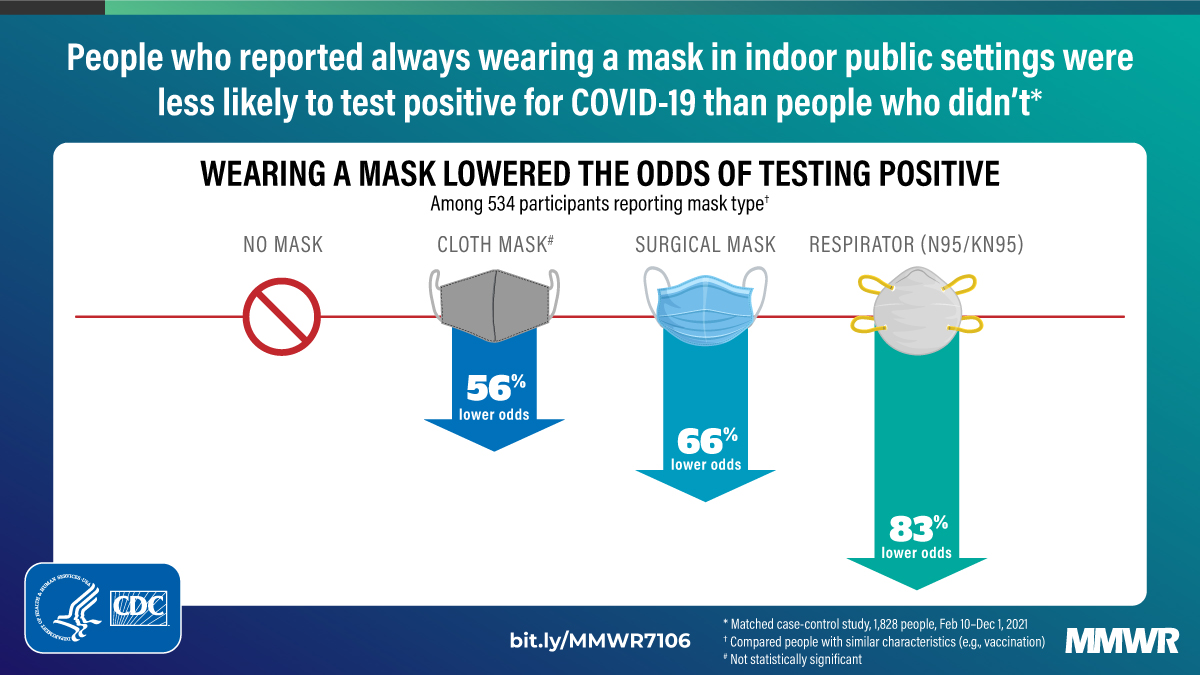KUALA LUMPUR, Feb 7 – Well-fitted N95 and KN95 respirator masks in indoor public settings can cut the odds of testing positive for Covid-19 by 83 per cent, according to a study published by the United States’ Centers for Disease Control and Prevention (CDC) recently.
The real-world study published last Friday found that N95 and KN95 masks offered the best protection from the coronavirus, compared to 66 per cent for surgical masks and 56 per cent for cloth masks.
“These findings reinforce that in addition to being up to date with recommended Covid-19 vaccinations, consistently wearing a face mask or respirator in indoor public settings reduces the risk of acquiring SARS-CoV-2 infection.
“Using a respirator offers the highest level of personal protection against acquiring infection, although it is most important to wear a mask or respirator that is comfortable and can be used consistently,” the CDC said in its Morbidity and Mortality Weekly Report.
The research was conducted by the California Department of Public Health between February 18 and December 1, 2021 – before Omicron hit the US. The study involved 652 people who had recently tested positive for the virus and 1,176 who had tested negative.
Previous laboratory studies have shown that community-level masking requirements reduce Covid rates, preventing wearers from contracting and transmitting the virus on to others.
The latest CDC findings reinforce a study conducted by researchers at Duke University last year which also found N95 masks to be the most effective in blocking respiratory droplets.
The Duke University study concluded that neck fleeces, often used by runners, were the least effective. It said wearing a fleece mask resulted in a higher number of respiratory droplets as the material appeared to break down larger droplets into smaller particles that are more easily carried away with air.
Folded bandanas and knitted masks also performed poorly and did not offer much protection.
N95 masks can filter both large droplets and the smaller aerosols that may contain the airborne virus. N95s are also especially efficient, filtering out about 95 per cent of airborne particles.
N95 and KN95 masks are technically similar in terms of filtration, but are certified by different organisations. N95 masks are certified by the US National Institute for Occupational Safety and Health (NIOSH) while the more widely available KN95 masks are manufactured in China to meet national standards.
Amid the spread of the highly transmissible Omicron variant, several schools and universities in the US, including the School District of Philadelphia, Cornell University, the University of Arizona, the University of Southern California, announced they would require students to wear surgical or respirator masks rather than cloth masks.
Some airlines, including Air France, Lufthansa, and Finnair, have also banned cloth masks in favour of more effective face coverings.
European countries like Germany, France, and Austria have also mandated that citizens wear filtering facepieces (FFP) — a European standard that offers a similar filtration system to the N95 — over cloth face coverings.








